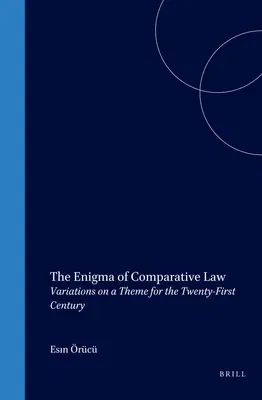A E Orucu
(Author)The Enigma of Comparative Law: Variations on a Theme for the Twenty-First Century (Softcover Reprint of the Original 1st 2004)Paperback - Softcover Reprint of the Original 1st 2004, 14 May 2004

Qty
1
Turbo
Ships in 2 - 3 days
In Stock
Free Delivery
Cash on Delivery
15 Days
Free Returns
Secure Checkout
Print Length
242 pages
Language
English
Publisher
Brill Nijhoff
Date Published
14 May 2004
ISBN-10
9004139893
ISBN-13
9789004139893
Description
Product Details
Author:
Book Edition:
Softcover Reprint of the Original 1st 2004
Book Format:
Paperback
Country of Origin:
US
Date Published:
14 May 2004
Dimensions:
24.38 x
16.26 x
2.03 cm
ISBN-10:
9004139893
ISBN-13:
9789004139893
Language:
English
Location:
Dordrecht
Pages:
242
Publisher:
Weight:
576.06 gm

